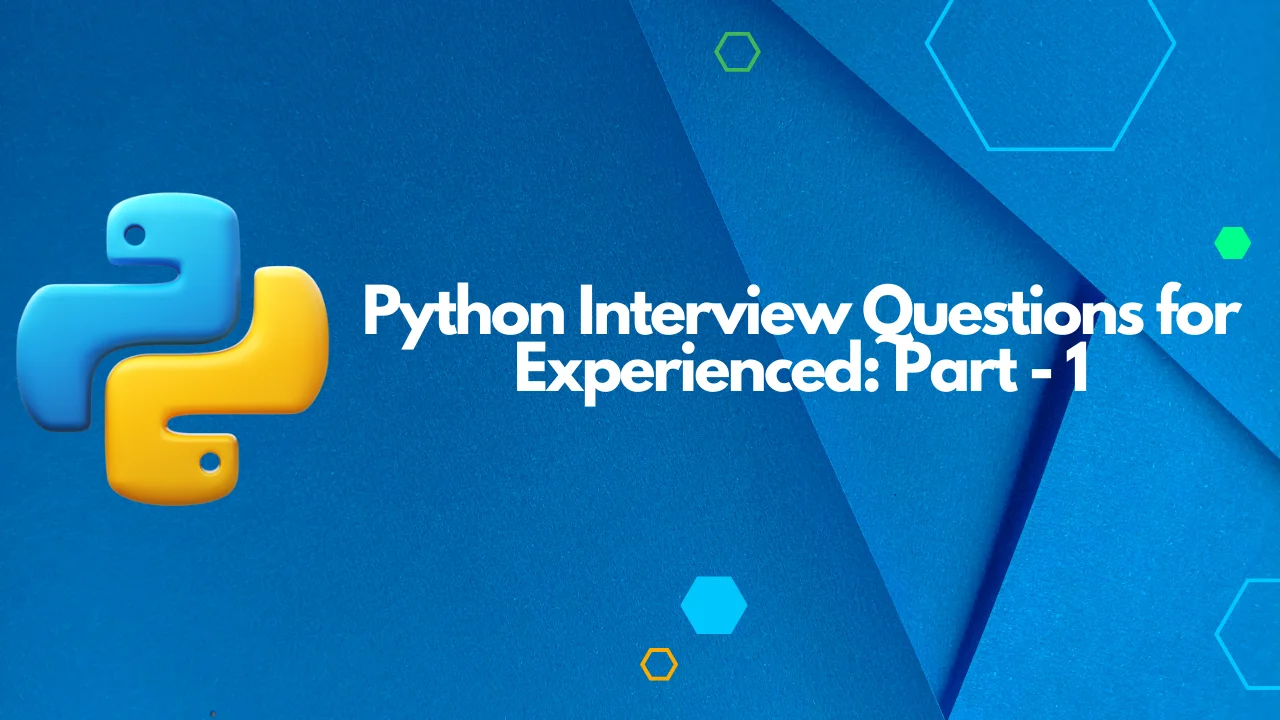Python Interview Questions for Experienced: Part - 1

1. How is memory managed in Python?
Memory management in Python is handled by its private heap space. The Python memory manager takes care of the allocation and deallocation of memory, utilizing a private heap to manage objects. It has an in-built garbage collector that reclaims memory by deallocating objects that are no longer referenced.
2. What are Python namespaces? Why are they used?
Python namespaces are containers that hold names mapped to objects in a program. They help avoid naming conflicts by providing a unique space for every identifier. Namespaces are used to organize and manage names in a codebase, preventing naming collisions and making it easier to understand and maintain code.
3. What is Scope Resolution in Python?
Scope resolution in Python refers to the process of determining the value of a variable within a program. Python follows the LEGB rule (Local, Enclosing, Global, Built-in) to resolve variable names based on their scope. It looks for a variable in the local scope first and then moves to higher scopes if not found.
4. What are decorators in Python?
Decorators in Python serve as functions altering the functionality of other functions. They allow you to add functionality to existing functions dynamically without changing their code. Decorators are commonly used for logging, authorization, caching, and more.
5. What are Dict and List comprehensions?
Dict and list comprehensions are concise ways to create dictionaries and lists respectively in Python. They provide a compact syntax for generating these data structures from iterable objects using a single line of code, often involving loops and conditional statements.
6. What is lambda in Python? Why is it used?
Lambda functions in Python are small, anonymous functions defined using the lambda keyword. They are used for creating small, throwaway functions without the need to formally define a function using def. Lambdas are commonly used in situations where a simple function is needed for a short period of time.
7. Explain the process of duplicating an object in Python.
The copy module in Python facilitates the copying of objects. The copy.copy() function creates a shallow copy of an object, while copy.deepcopy() creates a deep copy, allowing modification of the copied object without affecting the original.
8. How do xrange and range differ in Python?
In Python 2, range() returns a list while xrange() returns an xrange object which behaves like an iterator, saving memory for large ranges. However, in Python 3, range() itself behaves like the Python 2 xrange() and returns a range object which is more memory efficient.
9. What is pickling and unpickling?
Pickling is the process of converting a Python object into a byte stream, while unpickling is the reverse process of restoring a Python object from a byte stream. It’s commonly used for object serialization and storage.
10. What are generators in Python?
Generators in Python are functions that yield a sequence of values using the yield keyword. They generate values lazily, one at a time, allowing efficient memory usage, especially for large data sets or infinite sequences.
In conclusion,
mastering Python is a continuous journey, and these interview questions serve as a guide for experienced professionals. Embrace these insights to confidently navigate interviews, showcasing your expertise, problem-solving abilities, and deep understanding of Python’s versatility in real-world applications. Keep coding and exploring new horizons in the realm of Python!
Ready to take your Python skills to the next level? Explore our top-notch Python Training in Chennai. Our expert instructors and hands-on approach ensure that you not only ace interviews but also thrive in real-world scenarios. To kickstart your journey to Python excellence, contact us at +91 9655-333-334. Secure your future today with the best Python Training in Chennai. Don’t miss out on the chance to propel your career forward!





